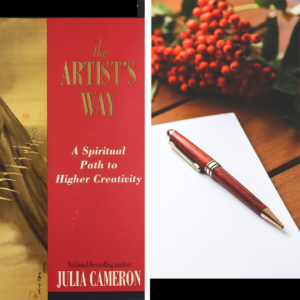
Because I want to assign as little reading as possible each day of our study of Cameron’s book The Artist’s Way, we’ll skip to page 9 for Day 1. Don’t worry– we’ll go back later, but I want you to start writing Morning Pages today.

READ: The Basic Tools, pgs. 9- 12 of The Artist’s Way.
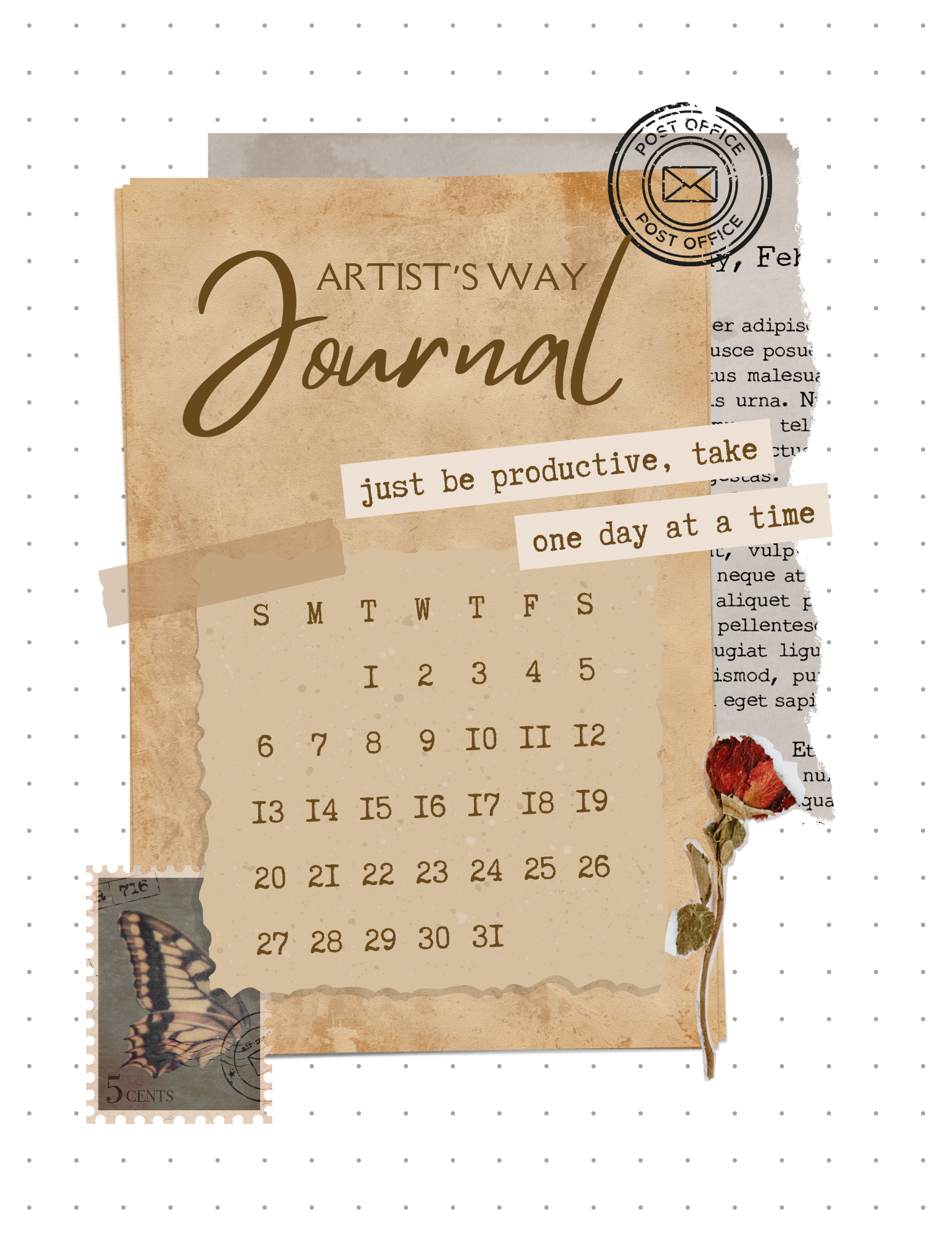
I have created a Reading Tracker and Book Journal to coincide with this study. Feel free to download and print the 8.5″ x 11″ pages or use my journal to help you create your own. [PS you don’t nee a fancy journal to participate.]

As you read Cameron’s books, you will notice several quotes that you will want to remember. You might want to create a log of your favorite quotes.
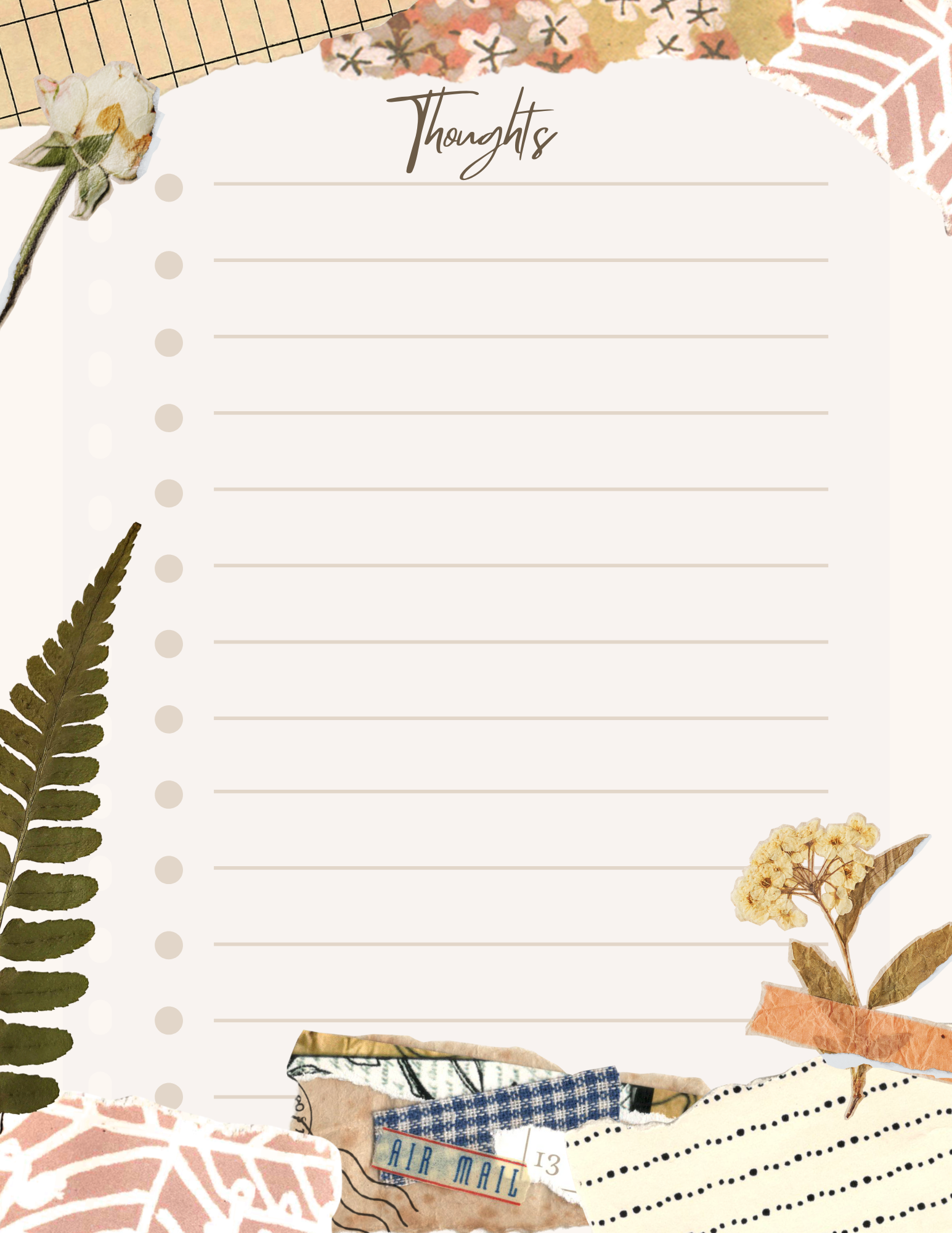
You might also want to jot down your thoughts about your favorite quotes or anything else you would like to remember about your reading. Don’t confuse these notes with your Morning Pages. Those are a separate type of writing activity. Morning Pages are explained in today’s reading.
![]()
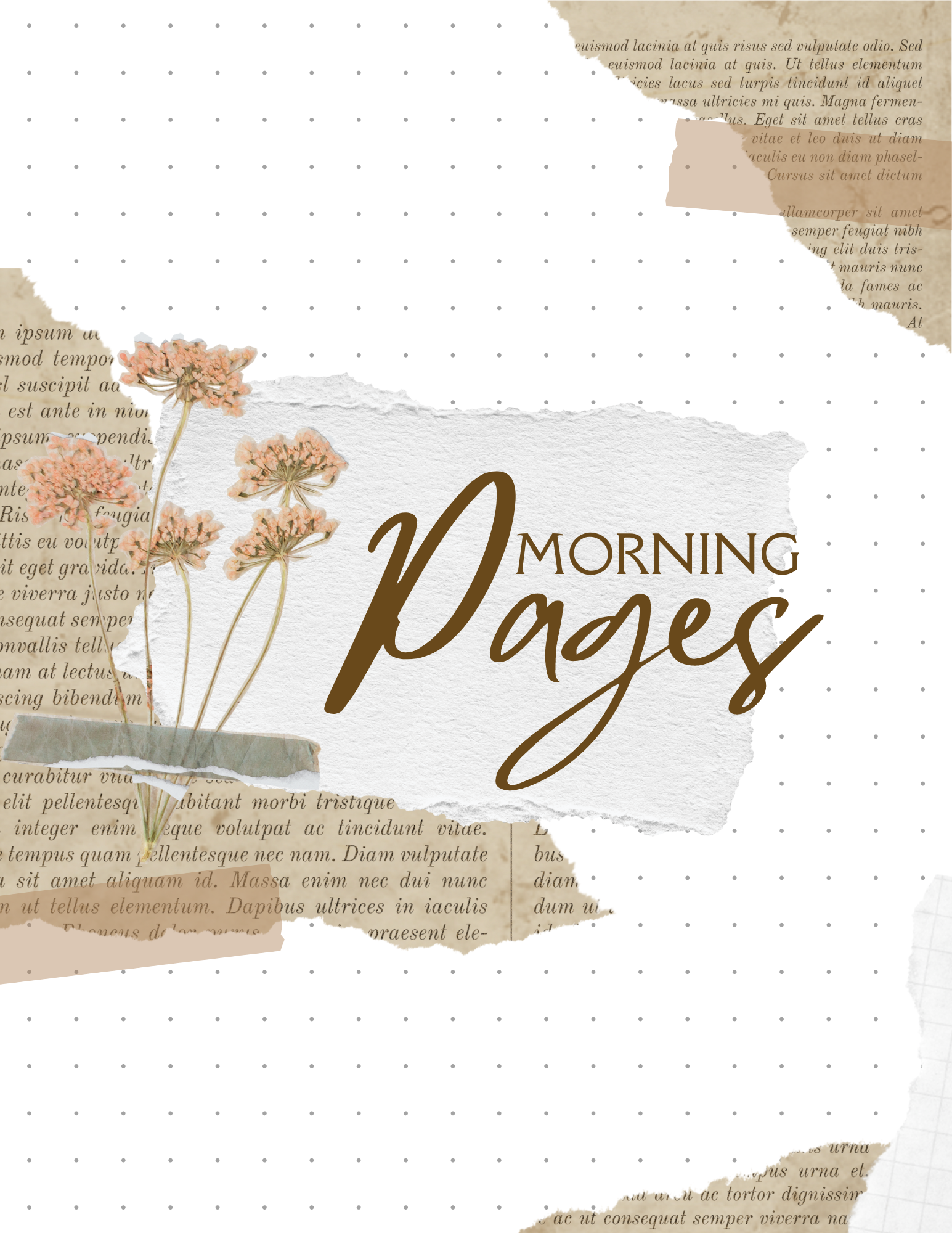
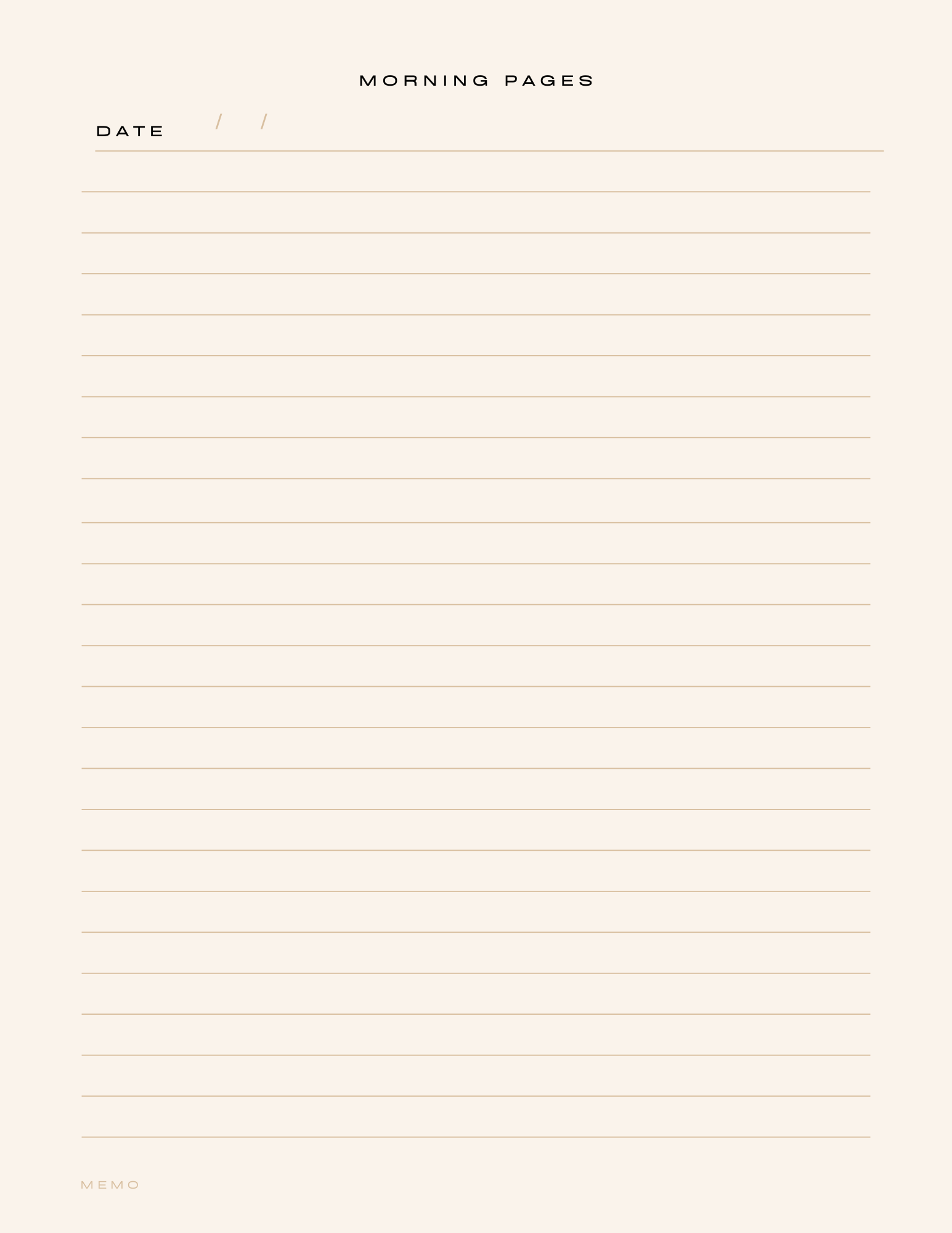
Here is the text of your reading assignment for Day 1:
THE MORNING PAGES
“In order to retrieve your creativity, you need to find it. I ask you to do this by an apparently pointless process I call the Morning Pages. You will do the pages daily through all the weeks of the course and, I hope, much longer. I have been doing them for a decade now. I have students who have worked with them nearly that long and who would no more abandon them than breathing.
“Ginny, a writer-producer, credits the morning pages with inspiration for her recent screenplays and clarity in planning her network specials. “I’m superstitious about them by now,” she says. “When I was editing my last special, I would get up at 5:00 A.M. to get them done before I went in to work.”
“What are morning pages?
“Put simply, the Morning Pages are three pages [pg.9] of longhand writing, strictly stream-of-consciousness: “Oh, god, another morning. I have NOTHING to say. I need to wash the curtains. Did I get my laundry yesterday? Blah, blah, blah …” They might also, more ingloriously, be called brain drain, since that is one of their main functions.
Morning Pages Are Not Creative Writing
“There is no wrong way to do morning pages. These daily morning meanderings are not meant to be art. Or even writing. I stress that point to reassure the nonwriters working with this book. Writing is simply one of the tools. Pages are meant to be, simply, the act of moving the hand across the page and writing down whatever comes to mind. Nothing is too petty, too silly, too stupid, or too weird to be included.
“Words are a form of action, capable of influencing change.” INGRID BENGIS
“You need to claim the events of your life to make yourself yours.” ANNE-WILSON SCHAEF
“The Morning Pages are not supposed to sound smart—although sometimes they might. Most times they won’t, and nobody will ever know except you. Nobody is allowed to read your morning pages except you. And you shouldn’t even read them yourself for the first eight weeks or so. Just write three pages, and stick them into an envelope. Or write three pages in a spiral notebook and don’t leaf back through. Just write three pages … and write three more pages the next day.
[Example]
“September 30, 1991 … Over the weekend, for Domenica’s biology project, she and I went bug hunting on the Rio Grande and Pott Creek. We collected water crawlies and butterflies. I made a crimson homemade butterfly net that was quite functional although dragonflies eluded us to our dismay. We did not catch the tarantula strolling down the dirt road near our house. We just enjoyed spotting it. Although occasionally colorful, the morning pages are often negative, frequently fragmented, often self-pitying, repetitive, stilted or babyish, angry or bland—even silly sounding. Good!
“Oct. 2, 1991 … I am up and have had a headache and have taken aspirin and feel a little better although still shaky. I may have that flu after all. I am getting to the [pg. 10] bottom of a lot of unpacking and still no teapot from Laura whom I am sorely missing. What a heartbreak …
“All that angry, whiny, petty stuff that you write down in the morning stands between you and your creativity. Worrying about the job, the laundry, the funny knock in the car, the weird look in your lover’s eye—this stuff eddies through our subconscious and muddies our days. Get it on the page.
“The Morning Pages are the primary tool of creative recovery. As blocked artists, we tend to criticize ourselves mercilessly. Even if we look like functioning artists to the world, we feel we never do enough and what we do isn’t right. We are victims of our own internalized perfectionist, a nasty internal and eternal critic, the Censor, who resides in our (left) brain and keeps up a constant stream of subversive remarks that are often disguised as the truth. The Censor says wonderful things like: “You call that writing? What a joke. You can’t even punctuate. If you haven’t done it by now you never will. You can’t even spell. What makes you think you can be creative?” And on and on.
“A mind too active is no mind at all.” THEODORE ROETHKE
“The events in our lives happen in a sequence in time, but in their significance to ourselves, they find their own order … the continuous thread of revelation.” EUDORA WELTY
“Make this a rule: always remember that your Censor’s negative opinions are not the truth. This takes practice. By spilling out of bed and straight onto the page every morning, you learn to evade the Censor. Because there is no wrong way to write the morning pages, the Censor’s opinion doesn’t count. Let your Censor rattle on. (And it will.) Just keep your hand moving across the page. Write down the Censor’s thoughts if you want to. Note how it loves to aim for your creative jugular. Make no mistake: the Censor is out to get you. It’s a cunning foe. Every time you get smarter, so does it. So you wrote one good play? The Censor tells you that’s all there is. So you drew your first sketch? The Censor says, “It’s not Picasso.”
“Think of your Censor as a cartoon serpent, slithering around your creative Eden, hissing vile things to keep you off guard. If a serpent doesn’t appeal to you, you might want to find a good cartoon image of your Censor, maybe the shark from Jaws, and put an X through it. Post it where you tend to write or on the inside cover of your notebook. Just making the Censor into the nasty, clever little character that it is begins to pry loose some of its power over you and your creativity. [pg. 11]
“More than one student has tacked up an unflattering picture of the parent responsible for the Censor’s installation in his or her psyche and called that his or her Censor. The point is to stop taking the Censor as the voice of reason and learn to hear it for the blocking device that it is.
“Morning pages will help you to do this. Morning pages are nonnegotiable. Never skip or skimp on morning pages. Your mood doesn’t matter. The rotten thing your Censor says doesn’t matter. We have this idea that we need to be in the mood to write. We don’t.
“Morning pages will teach you that your mood doesn’t really matter. Some of the best creative work gets done on the days when you feel that everything you’re doing is just plain junk. The Morning Pages will teach you to stop judging and just let yourself write. So what if you’re tired, crabby, distracted, stressed? Your artist is a child and it needs to be fed. Morning pages feed your artist child. So write your Morning Pages.
“Three pages of whatever crosses your mind—that’s all there is to it. If you can’t think of anything to write, then write, “I can’t think of anything to write….” Do this until you have filled three pages. Do anything until you have filled three pages.
“When people ask, “Why do we write Morning Pages?” I joke, “To get to the other side.” They think I am kidding, but I’m not. Morning pages do get us to the other side: the other side of our fear, of our negativity, of our moods. Above all, they get us beyond our Censor. Beyond the reach of the Censor’s babble we find our own quiet center, the place where we hear the still, small voice that is at once our creator’s and our own.” Cameron, The Artist’s Way, pgs. 9-12.

Write 3 Morning Pages. No Editing — Just Write. Let it Flow. Whatever Comes to your mind. Write. Remember: This is not Creative Writing, You Are Simply Emptying Your Mind.
Discover more from Jacki Kellum
Subscribe to get the latest posts sent to your email.